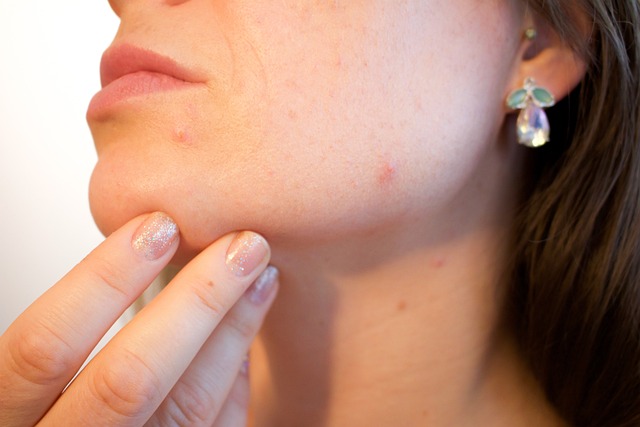Should You Be Using Coconut for Skincare?
Coconut has long been touted as a miracle ingredient for skincare, hair care, and overall health. But is coconut really good for your skin? Can you use coconut oil on your face every day? While coconut oil has many skincare benefits, it also has potential drawbacks that should not be ignored.
In this guide, we’ll explore the pros and cons of using coconut for skincare, break down the best ways to incorporate it into your routine, and discuss the side effects to watch out for.
The Benefits of Coconut for Skin
1. Deep Hydration
Coconut oil is rich in fatty acids like lauric acid and caprylic acid, which deeply nourish and hydrate the skin. It forms a protective barrier that locks in moisture, making it an excellent natural moisturizer for dry skin.
2. Anti-Inflammatory Properties
Coconut oil contains antioxidants and has anti-inflammatory properties, which can help soothe irritated skin. It’s particularly useful for people with conditions like eczema and psoriasis, as it can reduce redness and discomfort.
3. Antibacterial and Antifungal Effects
Lauric acid, which makes up nearly 50% of coconut oil’s fatty acid content, has been shown to have antimicrobial properties. This makes coconut oil beneficial for minor cuts, wounds, and even acne-prone skin, as it can help fight bacteria.
4. Natural Glow Enhancer
The nourishing properties of coconut oil can help enhance your skin’s natural radiance, making it look healthier and more vibrant.
5. Soothes Chapped Lips
Coconut oil acts as a natural lip balm, helping to heal and prevent chapped lips. It provides instant relief and long-lasting hydration.
6. Gentle Makeup Remover
Coconut oil can break down waterproof makeup without stripping the skin of its natural oils. It is an effective alternative to chemical-based makeup removers.
The Disadvantages of Coconut Oil on Skin
While coconut oil has many benefits, it is not suitable for all skin types. Here are some potential drawbacks:
1. Can Clog Pores (Comedogenic Properties)
Coconut oil is highly comedogenic, meaning it has a tendency to clog pores. If you have oily or acne-prone skin, applying coconut oil to your face may lead to breakouts and blackheads.
2. May Trigger Allergic Reactions
Although rare, some people are allergic to coconut oil. It is always advisable to do a patch test before applying it to larger areas of your skin.
3. Greasy Texture
Coconut oil is thick and greasy, which means it may not absorb easily into the skin. For some, it can feel heavy and uncomfortable, especially in hot and humid climates.
4. Not the Best for Sensitive Skin
If you have highly sensitive skin, coconut oil might be too rich and cause irritation or redness. Some dermatologists recommend using lighter oils like jojoba or almond oil instead.
Can You Put Coconut Oil on Your Face Every Day?
It depends on your skin type. If you have dry or normal skin, using coconut oil in moderation can be beneficial. However, if you have oily or acne-prone skin, it may not be ideal for daily use.
A good rule of thumb is to use coconut oil as part of your nighttime routine rather than during the day when your skin is more prone to attracting dirt and pollutants.
How to Use Coconut Oil in Your Skincare Routine
1. As a Moisturizer
- Apply a small amount of virgin coconut oil to dry areas after cleansing.
- Gently massage it into the skin until it’s absorbed.
2. As a Makeup Remover
- Apply a small amount of coconut oil to a cotton pad.
- Wipe away makeup gently, then rinse with a mild cleanser.
3. As a Lip Balm
- Dab a little coconut oil onto your lips to keep them hydrated.
4. As an Overnight Mask
- Mix coconut oil with aloe vera or honey for an ultra-hydrating overnight mask.
- Wash it off in the morning for soft, supple skin.
5. As a Body Oil
- Apply coconut oil all over your body after showering to lock in moisture.
Side Effects of Coconut Oil on the Face
- Breakouts: If your skin is prone to acne, coconut oil may exacerbate breakouts.
- Excessive Shine: If applied too heavily, it can make your face look excessively oily.
- Potential Allergic Reactions: Some people experience itching or irritation after applying coconut oil.
- Difficulty Washing Off: Since coconut oil is thick, it may require double cleansing to remove it completely.
Best Alternatives to Coconut Oil for Skincare
If coconut oil doesn’t work for your skin, consider these alternatives:
- Jojoba Oil: Great for acne-prone and oily skin.
- Argan Oil: A lightweight moisturizer with anti-aging benefits.
- Rosehip Oil: Helps with hyperpigmentation and skin renewal.
- Shea Butter: Excellent for deep hydration, especially for dry skin.
- Almond Oil: Gentle on sensitive skin and rich in Vitamin E.
Conclusion: Should You Use Coconut Oil on Your Skin?
Coconut oil has undeniable skincare benefits, but it’s not a one-size-fits-all solution. If you have dry or normal skin, it can be a great natural moisturizer. However, if you have oily or acne-prone skin, you may want to use it sparingly or opt for a lighter alternative.
Always patch-test coconut oil before incorporating it into your skincare routine, and listen to your skin’s needs. With the right approach, coconut oil can be a valuable addition to your skincare regimen.

